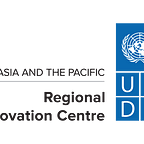UNDP Maldives Staying Relevant in a Fast Changing World by Sensemaking
By Akiko Fujii, Resident Representative, UNDP Maldives
Individually making sense in order collectively to make sense
Just a couple of days earlier, the ‘Brave Blossoms (Sakura)’, the Japanese national rugby team, had achieved a miraculous victory against Scotland, becoming the first Asian country ever to make it through to the quarter-finals of the rugby world cup. Watching the highlights of the game with the UNDP Maldives country team, we noticed the way individual players kept taking risks, creating new opportunities to advance and score in the game’s fast-changing environment. It was exciting to see the effects of spontaneous judgement calls made by individual players in what is often thought of as the ultimate ‘team’ game. How were the Sakura warriors able to keep operating so unconventionally, such as when at the instant of being tackled, they ‘offload’ the ball with one hand to an unseen team mate running behind?
But, let’s watch again. On second viewing, it seems that the tackled player is able to sense the position and movement of his unseen team mate — not with absolute accuracy, but enough to make the best possible response. This is an example of ‘sensemaking’. The team has just one objective: to win. At every single moment in the game, every single player seeks to maximise the team’s chances of winning. Sometimes that means carrying out rehearsed group manoeuvres. But when these break down, every individual player must ‘make sense’ of the immediate situation and respond creatively. The Japanese team won because its individual members made better sense of these situations than did their opponents.
The same goes with us — well, not to win a rugby game, but to win the battle of achieving inclusive and sustainable human development in the Maldives. We work together towards our collective goal. But what makes that collective goal achievable are the actions of individual staff members, who constantly ‘make sense’ of the situation and respond creatively in search of solutions.
‘Making sense’ in UNDP Maldives’ collective work starts with individual situational awareness, followed by finding common threads across each other’s work, so that we can shape our overall portfolio as a purposefully designed programme responding to the current and emerging local needs of the time.
Making sense of ‘Inclusiveness’ — some of the observations that emerged from our workshop last week:
- Inclusivity and participation are so important in our work to ensure no one is left behind.
- Hey, but do we really know what’s happening to those who are or are close to being left behind? Who and where are they, anyway?
- Youth and women are not all the same. People with disabilities, in isolated atoll islands in particular, have few opportunities.
- Do we have sufficient data, or analysis of our vulnerable populations, qualitative as well as quantitative …?
- We have many community level innovations — successful and not so successful. We know they exist.
- Well, knowledge and data exist … but everywhere … and nowhere. You see, people don’t share. And even when they share, it is not tailored in a way that is useful … not tailored to policy makers, the general public, different audiences …
- We should position, convene, and package data and analysis to generate and communicate meaningful knowledge … to influence policies to make a difference to vulnerable people at scale.
Making sense of ‘Sustainability’
- Everything we do or don’t do has to do with climate change in the Maldives.
- We live in a contradictory world … which keeps developing infrastructure and economy models that release more carbon emissions when island communities already face extreme consequences of climate change and depleted natural resources. Our entire system needs transformation for future generations.
- Well, we invest in youth, the future generation, but are they seen as change agents for transformation? Are we synergizing, integrating our climate change, chemical and disaster work with wider youth empowerment work?
- But is our future generation equipped? Equipped with what? Do we know what skill sets are needed in the future?
- Our ocean may not have enough fish, water patterns and chemical use define livelihoods, and technologies can change whole scenarios of future work.
- We need to invest in R&D on future trends, so we can offer what hasn’t yet been seen but may likely happen, in order to stay relevant, agile and cutting edge and ensure sustainable development for our island future generations.
Phew … it was all intense. It feels like we discussed a lot — yet more remains to be discovered and tackled — as individuals and collectively as a team. But one thing is clear: that we all agree to stay relevant as an organization, and that we will each give our best shot at every moment — even passing the ball with one hand, while keeping moving, ahead of the changing world, without waiting for everything to be known. But now it’s time for us all to go and jump into the sea! And suddenly … it all makes sense … yes, we want this beautiful world to be a source of wealth for everyone, inclusive of future generations. Huge responsibilities ahead of us, indeed.
Let us know your thoughts- find me on twitter or see more from the UNDP Asia Pacific Innovation work here. Still curious to learn more about the big picture intention and philosophy underpinning the ‘Sensemaking’ work underway across the UNDP? See the thoughtful piece here that paints the picture in detail.
